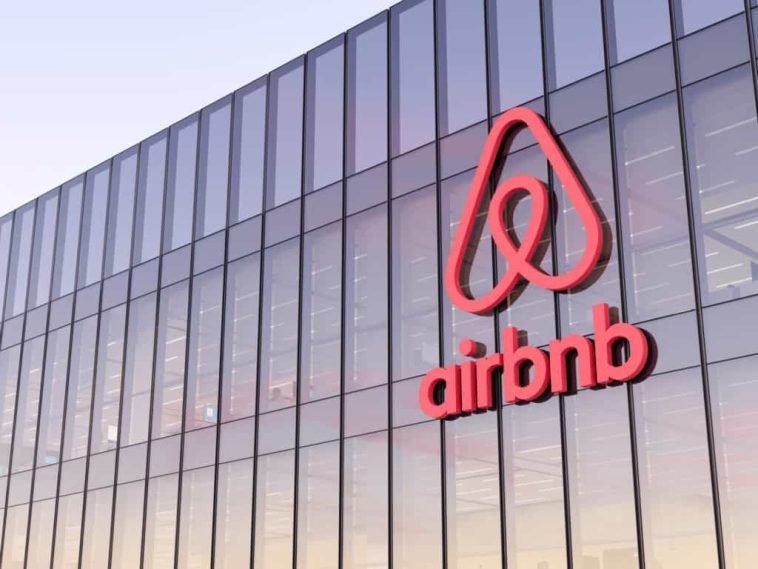You’ve found the perfect place to rent. Great location, lots of natural light, maybe even a view. Now you’re wondering: Can I run an Airbnb from this place? More importantly, how do I get the landlord to say yes?
Renting out a property on Airbnb can be a great way to make extra income.
But unless you own the place, there’s one big step before you can even list it — getting your landlord’s permission. This is where most people get stuck.
They either don’t know how to bring it up or they’re too nervous to ask. I get it. Asking your landlord to run a business from their property can feel like a big ask. But here’s the good news: It’s not impossible.
In fact, many landlords say yes — if you know how to approach the conversation the right way.
This guide breaks down how to do just that: how to talk to your landlord, what to say, what to expect, and how to increase your chances of getting a yes.
I’ll also walk through what kind of agreements you might need, some legal stuff to be aware of, and tips to keep things running smoothly once you’re up and running.
Let’s get into it.
1. Understand Why a Landlord Might Say No
Before you approach your landlord, try to see things from their side.
Most landlords who say no to Airbnb usually have these concerns:
Property damage
Noise complaints
Unreliable guests
Insurance and liability issues
Breaking the lease or city laws
Loss of long-term value
They’re not just being difficult — they’re trying to protect their investment. So if you want them to say yes, you need to address these concerns directly and show them you’re serious, responsible, and well-prepared.
2. Do Your Homework First
Before talking to your landlord, you need to make sure that Airbnb is even allowed in your area. Some cities have strict rules. Others require permits, or limit the number of days you can host.
Start here:
Your local government’s website
Talk to a local real estate agent or property lawyer if you’re unsure
Also, read your lease. If there’s a clause that bans subleasing or short-term rentals, you’ll need to talk about changing it.
3. Prepare Your Pitch
Treat this like a business pitch, because it kind of is. You’re asking to use someone else’s property to make money. Show your landlord you’ve thought this through.
Here’s what to cover when you bring it up:
Explain the idea clearly: that you want to rent it on Airbnb when you’re not using it or full-time with their permission
Emphasize the benefits to them:
You’ll take better care of the property
You can offer a small rent increase or profit share
The place will never be empty or neglected
Talk about guest screening: Airbnb has identity verification, background checks, and guest reviews
Mention Airbnb’s Host Guarantee: It offers up to $3 million in coverage for damage or injury (you can read about it here)
Promise clear communication and provide regular updates
Offer a written agreement that sets rules and expectations
Landlords are more likely to say yes if they feel in control, not surprised.
4. Suggest a Trial Run
If your landlord is still unsure, offer to do a trial period. Maybe 3 months of Airbnb rentals, with clear rules. If anything goes wrong, they can cancel the agreement.
This kind of flexible option shows that you’re not trying to take advantage of them — you’re confident in your plan and open to feedback.
5. Offer a Profit Share or Higher Rent
Sometimes the best way to get a yes is to make it worth their while.
You could suggest:
Paying a bit more in rent each month
Sharing a portion of the Airbnb earnings (for example, 10-20%)
Handling all repairs and cleaning
Money talks, especially if your landlord sees that they can earn more without doing any extra work.
6. Put It in Writing
If they say yes — get it in writing. Verbal agreements won’t protect you if things go wrong later.
You can use an addendum to your lease that covers:
How often you can rent
Guest rules
Insurance requirements
Profit-sharing terms (if any)
Right to end the agreement with notice
It’s best to have a lawyer take a quick look, or use a service like Rocket Lawyer or LawDepot to create a custom agreement.
7. Be a Great Host (and Tenant)
Once you’re up and running, keep things clean, quiet, and professional. A few tips:
Use smart locks or keyless entry
Set strict house rules
Screen guests carefully
Don’t allow parties or pets (unless approved)
Keep neighbors happy — complaints could shut everything down
Remember, your landlord is trusting you. Make them glad they said yes.
Bonus: What If They Say No?
If your landlord flat-out says no, don’t push it. But here are some other options:
Look for Airbnb-friendly landlords (yes, they exist — Facebook groups, Craigslist, or Airbnb-friendly apartments)
Switch to mid-term rentals (like 30+ day stays, which many landlords are fine with)
Offer property management: Some landlords may let you manage Airbnb guests in other properties they own, even if they don’t want it in yours
FAQs
Can I Airbnb my apartment without telling my landlord?
You can, but it’s not a good idea. If you get caught, you could be evicted and even sued. Always be upfront.
Is Airbnb legal in my city?
It depends on your city’s laws. Check the Airbnb Regulations Page for specific rules.
How much money can I actually make?
It depends on location, season, and how often you rent. According to AirDNA, average hosts in major cities make between $1,500–$4,000/month. But it can vary a lot.
What’s the difference between subletting and Airbnb?
Subletting usually means renting the whole place to someone else for a longer time (like months). Airbnb is more like short stays, often just a few nights.
Do I need insurance?
Yes. Airbnb includes host coverage, but it’s smart to get short-term rental insurance too. Check out companies like Proper Insurance or Safely.
Final Thoughts
Getting a landlord to say yes to your Airbnb idea takes some work — but it’s very possible. It all comes down to trust, preparation, and showing them it can be a win-win. If you’re professional, clear, and respectful, you’ll be surprised how many landlords are open to it.
So, if you’re ready to give it a shot — what’s your plan for starting the conversation with your landlord?




GIPHY App Key not set. Please check settings